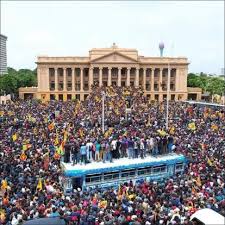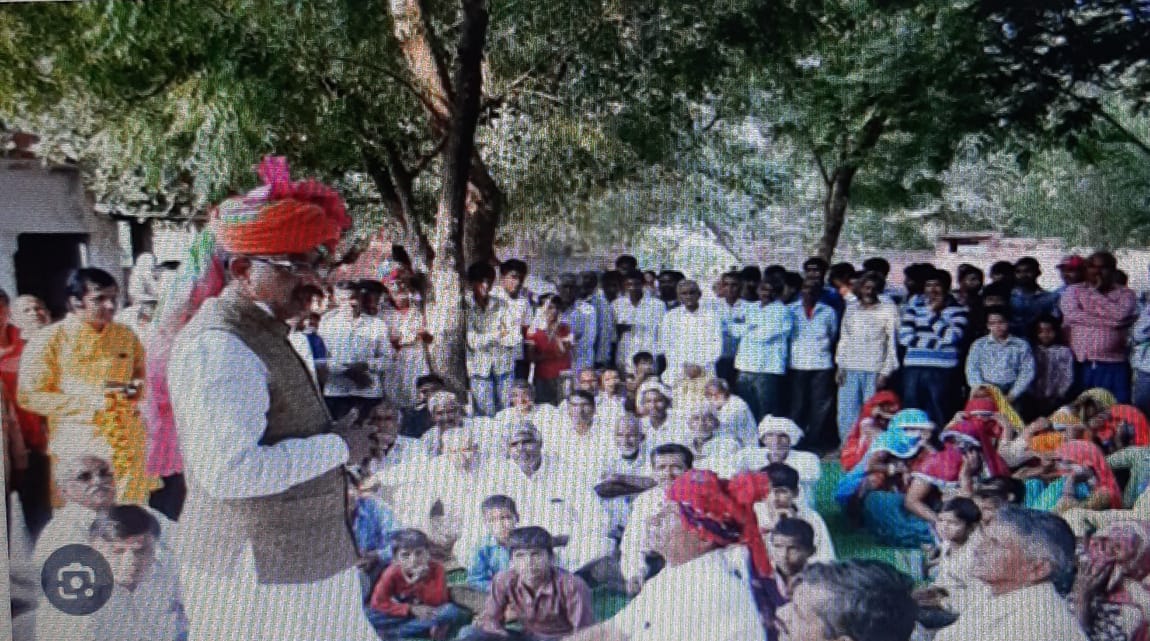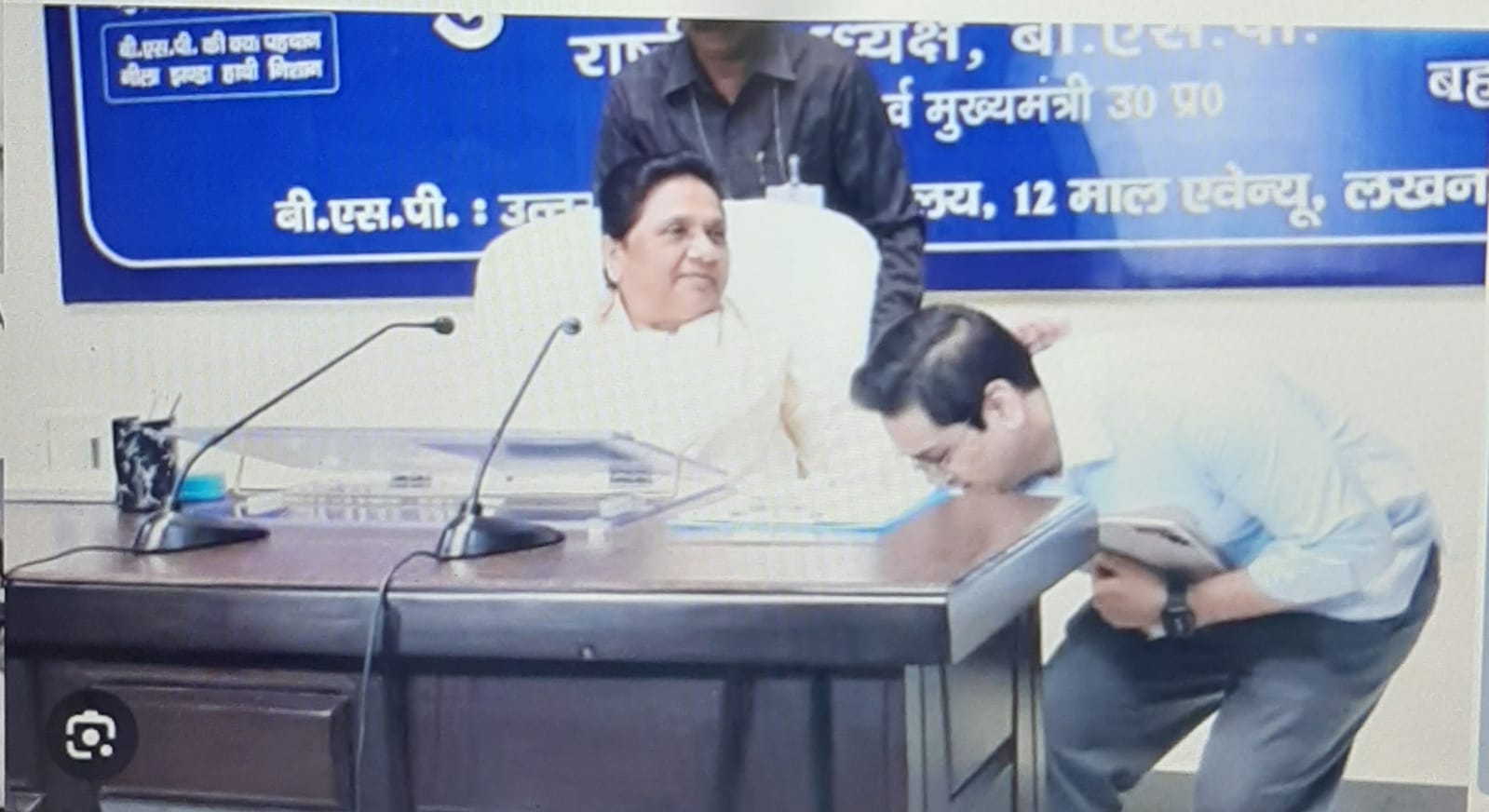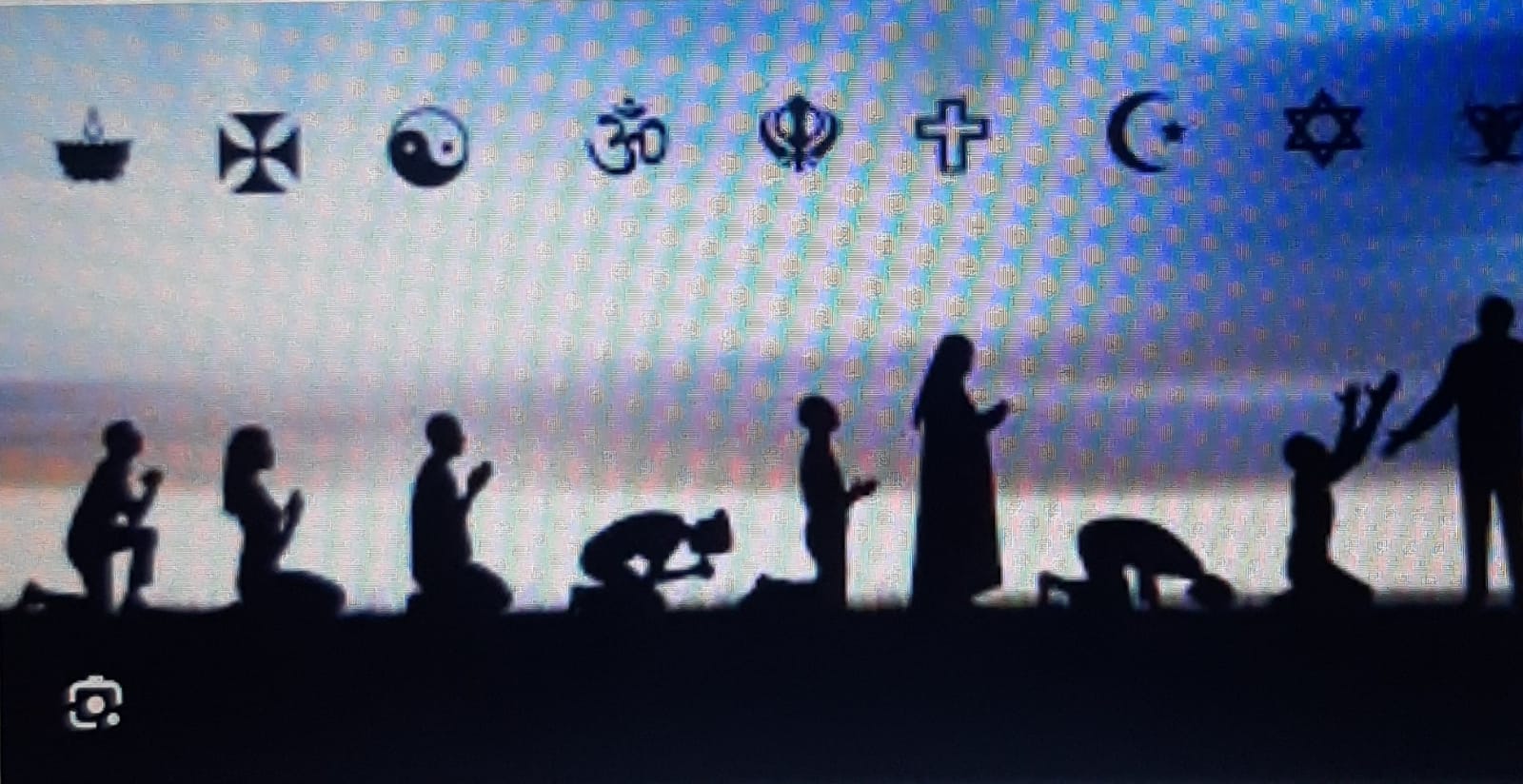
The Lankan people have sent a powerful message for all those ruling various countries across the globe. Every ruler needs to remember that they are there only to serve the people and with their explicit consent, write V.S.Pandey, Dr. Smita Pandey
Louis XV, whose reign preceded the French Revolution, is believed to have asserted “ Apres moi le deluge’’. After me, the deluge. He resonates in Sri Lanka presently where an unprecedented crisis roils its picturesque charm. Sri Lanka has the masses swarming the streets and forcing the duly elected Prime Minister and President to relinquish their long entrenched positions. People have ransacked the Presidential palace and have captured it. The President had to flee the country and the crowds are on the streets demanding Prime Minister’s resignation. Clearly this is an expression of peoples’ anger and frustration against the years of misgovernance by the Rajapakshe clan. The situation has come to such a pass that supplies of essential items like food, cooking gas, petrol, diesel have become non-existent and people have to queue up for endless days to procure them. This dire situation prevailed for months forcing the long suffering people to finally lose patience, come out on the street and agitate. Their protests remained peaceful in the initial months and they merely demanded that the government should act swiftly and normalise the situation. When that did not happen, the protests became louder and the crowd gheraoed the Prime Minister’s house and burnt it down. Later the crowds marched towards the presidential palace, forced the President of the country to flee and in this way the Lankan people demonstrated their sovereignty in the true sense of the term.
The Lankan people have sent a powerful message for all those ruling various countries across the globe. Every ruler needs to remember that they are there only to serve the people and with their explicit consent. This is not only true for democracies but for nations ruled by dictators, kings et al. Once the people decide that the inept ruler has to be made accountable, standing armies and efficient intelligence and surveillance networks become useless. This has been the case in every recent uprising in different nations. They interrogate Power fearlessly and demand accountability and answers- why are rulers generally lacking integrity/morality and jettisoning public interest and heeding only their sycophants and cronies?
This million-dollar question is not difficult to answer. It lies in the philosophy of means and ends. Any one following an unethical path to reach power, has to pay for it dearly. This is true for democrats and autocrats both. This means and ends principle has proved its veracity time and time again, with most of the dictators and corrupt politicians across the world meeting a sad /tragic end. However, these unprincipled rulers- are of a different mettle- they convince themselves that though they are traversing the same amoral path but their end will be different – sublime. They negate the cause and effect theory but finally get subsumed .
History immortalizes the Great men who defined their governance by following an ethical path. The Father of our nation continues to illumine this path for the world. The leader defines the post and not vice versa. The Father of the American nation, the indomitable George Washington, also embodied such sterling qualities. In the acrimonious debates in the Philadelphia Convention that created the U.S. constitution and the august position of the President of the United States, there was unanimity on one point – Washingtonian qualities will define the office of the American President .He was the Commander and hero of the American Revolution, a selfless public servant, he was recalled to become President of the constitutional convention, had unprecedented popularity but was still reluctant to become President -he refused to even campaign for himself- such an icon gave legitimacy and stature and shaped the powerful American Presidency. As delegate Pierce Butler of South Carolina stated, ’’many delegates shaped their ideas of the powers to be given to a President by their opinion of Washington’s virtue’’
Virtue is the defining trait whose glaring absence is now defining governance. Sovereignty of the people is now being asserted by ousting popularly elected leaders who have abysmally failed to deliver even the basics to masses to literally keep body and soul together. Discontented masses are now clamoring for principled leaders who stand above Machiavellian politics, the public aspires for office holders who covet political office for doing maximum public good, who are unifiers not dividers and are not furthering their own interests at the cost of society’s.
The example of Washington resonates in today’s popular turbulence in our neighborhood. We need iconic leaders to progress. The first foundational Presidency of fledgling America was so successful only because of what George Washington personified – upright and principled, incorruptibly serving only the good of the nation, above personal gain. He was inflexible about setting salient precedents based only on the principle, “I hold the maxim no less applicable to public than to private affairs, that honesty is always the best policy.’’ The Lankan leadership eschewed this path at its peril.
(Vijay Shankar Pandey is former Secretary Government of India, Dr Smita Pandey is academician and writer)









